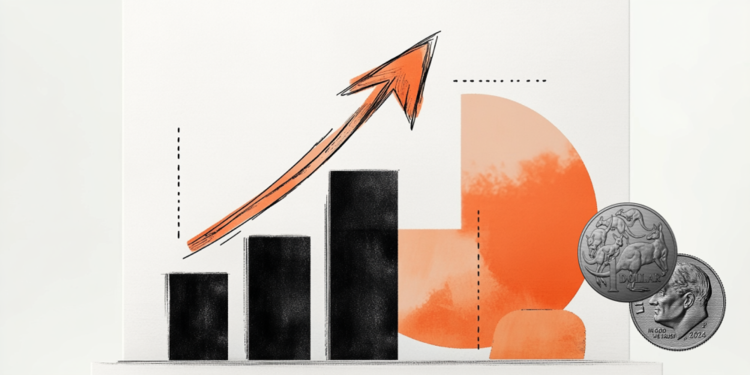A craft beer it can be much more expensive in USA. Ball, one of the world’s largest suppliers of aluminum cans, is expected to affect the entire craft beer world after raising the minimum number of cans certain producers must order, and saying it will raise prices.
The company said it will now require non-contract customers – which include many smaller breweries – to order no fewer than five trucks (about 1.02 million cans) for each of its beverages from 1 January. The minimum number for a previous purchase was one truck.
In addition, starting in 2022, Ball wrote that it would no longer be able to store surplus cans from these customers in its warehouses, and that the price per can would increase by nearly 50% for some of these customers, according to communications sent to breweries.
The news has many small and regional brewers scrambling to secure cans and has spawned fears of heavier costs, reduced beer variety and higher prices for consumers.
“I see this as an economic murder for some, and certainly most small breweries will have to significantly raise prices or rethink their entire models,” said Garrett Marrero, president and co-founder of Maui Brewing in Hawaii.
The pressured craft beer industry was already suffering from the closure of restaurants and taprooms due to the pandemic, inflationary pressures, can shortages and other supply chain disruptions.
Then, just over a week ago, news of Ball reached the inboxes of hundreds of craft breweries across the country, according to the Brewers Association, the trade organization that represents small, independent breweries. Denver Westword was the first to report on Ball’s minimum purchase amounts.
In the letters, copies of which were provided to the CNN Business, Ball wrote that demand for aluminum cans continues to outstrip supply.
“Ball is making investments to bring additional capacity online, and in the meantime, we will remain in a highly constrained supply environment for the foreseeable future,” according to the letter. “This environment is making it difficult to deliver the quality experience our customers have come to expect from Ball, and we are making some adjustments to how we do business to remedy that.”
With less than six weeks until the New Year, hundreds of craft brewers will no longer be able to purchase their preprinted cans directly from Ball and will instead have to secure one of the most critical components of their business from new sources, said Bob Pease, president of the Brewers Association.
“This is still new, so we are still trying to gather information from our members who are being affected,” Pease told CNN Business.
The Brewers Association is evaluating its options and considering contacting lawmakers, Pease said, and hopes to speak with executives at Ball, which is a long-time member of the association, he added.
On Friday (26), Pease said he had a response from Ball’s senior leadership, and the two sides are working to arrange a meeting in December to discuss recent changes.
Ball isn’t completely abandoning the craft beer industry, a company spokesman told the CNN Business.
“The new model will increase our overall efficiency and allow us to actually produce more cans for our contract customers, including craft breweries,” Ball spokesman Scott McCarty wrote via email.
McCarty added that Ball is building five plants in the United States to produce more cans, adding that “each year, we assess supply and demand and will continue to invest where it makes sense.”
As potential solutions for customers unable to meet high minimums, Ball provided contact information for four distributors who could take smaller orders, provide storage and offer labeling options such as adhesives and shrink wrap.
“This will force us to close”
When Upslope Brewing Company launched in Boulder, Colorado, in 2008, it was one of the few craft breweries to package their beer exclusively in aluminum cans.
“My first call asking for cans was with Ball,” co-founder Matt Cutter told CNN Business. “They said, ‘Okay, you can buy a truck.”
At the time, this was not feasible for Upslope, a company whose initial funds came from the second mortgage on Cutter’s home. But a few years later, when Upslope’s snowmelt beer was being consumed throughout the Mountain West region, it was certainly possible.
“And Ball kept knocking on our door,” he said.
Ball, also a Colorado-based company, had a can factory at the end of the highway and offered services such as warehousing and cheaper shipping. Upslope, which since 2014 bought Ball cans in trucks, now feels left out.
Cutter fears that the higher costs – including raw materials, storage and any additional margins from working with new distributors – could make six-packs sold in stores $1 to $2 more expensive next spring .
Ultimately, he said, these higher costs may not be sustainable for smaller companies. “As craft brewers, we’re not stalling consumers here,” he said. “We cannot absorb this. This will force us to close.”
In Pueblo, Colorado, one of the cofounders of Walter Brewing Co. was frantically trying to catch up on what Ball’s plans might mean for his brewery.
Walter Brewing has purchased cans for its Walter’s Original Pilsner and Walter’s Pueblo Chile beers from groups that buy from Ball as well as directly from the company. “It would take us more than a year to have [um caminhão]” said Andy Sanchez, one of the co-owners of Walter Brewing.
The five new truck loads required are out of the question.
“With six weeks’ notice, it’s a lot to digest in such a short time,” said Sanchez. “It would be crucial for all small brewers if Ball rethinks the path and perhaps thinks of a way to mitigate short-term impacts.”
Maui Brewing, due to its scope of operations in Hawaii and close relationships with Ball’s factory there, should be relatively insulated from major disruptions, Marrero said. However, he fears that breweries on the mainland and Maui Brewing’s efforts to expand production there will face complications.
He is concerned that breweries that cannot afford the costs of switching suppliers will be forced to change operations, close or merge. He also said he fears this could lead to greater use of less sustainable materials such as plastic labels.
“This will create a paradigm shift in the advancement of craft beer,” he said.
*(Translated text. Click here to read the original, in English)
Reference: CNN Brasil
I am Sophia william, author of World Stock Market. I have a degree in journalism from the University of Missouri and I have worked as a reporter for several news websites. I have a passion for writing and informing people about the latest news and events happening in the world. I strive to be accurate and unbiased in my reporting, and I hope to provide readers with valuable information that they can use to make informed decisions.







